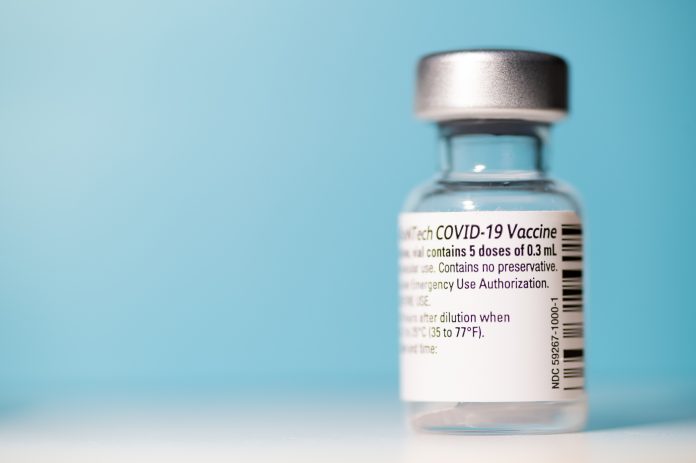According to a new study, the antibodies created by the Pfizer vaccine are on average less effective against the Delta variant
A team at the Francis Crick Institute and National Institute for Health Research (NIHR) UCLH Biomedical Research Centre, have created the largest available study of how one vaccine can perform against the new variants of concern.
The team examined antibodies in the blood of 250 healthy people who received either one or two doses of the Pfizer vaccine, up to three months after their first dose.
Using a new technique developed at the Crick Institute, researchers tested the ability of antibodies to block entry of the virus into cells. These are also known as ‘neutralising antibodies.’
They tested antibodies against five key variants:
- The original strain first discovered in Wuhan, China
- The dominant strain in Europe during the first wave in April 2020 (D614G)
- B.1.1.7, the variant first discovered in Kent, UK (Alpha)
- B.1.351, the variant first discovered in South Africa (Beta)
- B.1.617.2, the newest variant of concern, first discovered in India (Delta)
They found that less antibodies could fight Delta
According to the team, the Delta variant presented more of a challenge to antibodies created by the vaccine than the Alpha variant or other variants in the past did.
They also found that people who had both Pfizer vaccinations had five times less neutralising antibodies against the Delta variant, than in comparison to the original virus that came out of Wuhan.
It’s important to remember one thing – the first generation vaccines are created from that initial virus, that begun the pandemic back in 2019. Scientists have always been concerned about mutations and variants, presenting increased challenges for the first vaccines.
After one dose, only 32% protection against Delta
The scientists further found that crucially, one dose gave less protection against every new variant. While the original Wuhan strain created a protection of 79% after just one shot of Pfizer, the Alpha variant originating in the UK then created only 50%, with the Delta variant from India pushing that number lower to 32%.
Finally, the Beta variant originating in South Africa took protection in one dose all the way down to 25% – less than half of what the vaccine could originally do.
So, is the Pfizer vaccine effective against the Delta variant?
Emma Wall, UCLH Infectious Diseases consultant and Senior Clinical Research Fellow for the Legacy study, commented: “This virus will likely be around for some time to come, so we need to remain agile and vigilant. Our study is designed to be responsive to shifts in the pandemic so that we can quickly provide evidence on changing risk and protection.
“The most important thing is to ensure that vaccine protection remains high enough to keep as many people out of hospital as possible.
“And our results suggest that the best way to do this is to quickly deliver second doses and provide boosters to those whose immunity may not be high enough against these new variants.”











